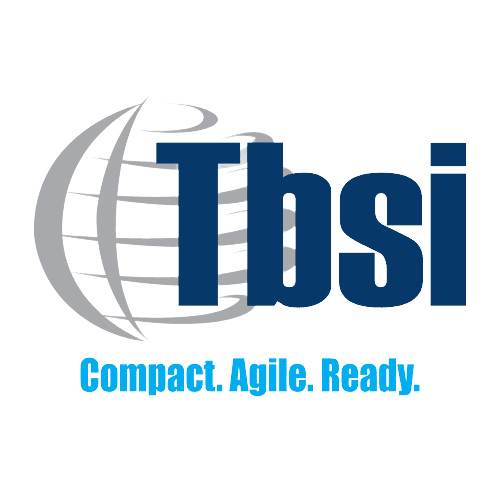Innovations in the Casting Process: Shaping the Future of Manufacturing
The latest advancements in casting machine technology are revolutionizing the manufacturing industry, offering unparalleled precision and efficiency. These innovations enhance product quality and streamline production processes, making manufacturing more sustainable and cost-effective. As such, embracing these cutting-edge technologies is crucial for staying competitive in today’s fast-growing market.
In this article, we will explore the latest innovations in casting machine technology and how they are transforming manufacturing processes. We will also provide case studies that showcase successful implementations across different sectors, including insights from industry experts.
1. Additive Manufacturing (3D Printing)
Additive manufacturing, especially 3D printing, has transformed the casting process by allowing the creation of complex designs and reducing production time. 3D printing wax or plastic patterns for investment casting allows for more complicated designs. Meanwhile, direct metal printing creates intricate geometries that traditional methods cannot achieve.
2. Advanced Simulation and Modeling
Advanced simulation and modeling technologies are crucial in maximizing the casting process by predicting and controlling various parameters. Flow and solidification simulation software can predict the behavior of molten metal and optimize mold design. Moreover, thermal analysis provides real-time cooling rate monitoring, which improves the mechanical properties of cast parts.
3. Improved Materials and Alloys
The development of new materials and alloys has greatly enhanced the performance and durability of cast products. High-performance alloys for high-temperature applications provide superior properties, while advanced refractory coatings for molds increase durability and improve surface finishes.
4. Automation and Robotics
Automation and robotics have significantly improved the efficiency and safety of the casting process. Robotic pouring systems ensure precise and consistent metal flow, which reduces human error. Moreover, automated handling and finishing robots take care of post-casting processes.
5. Smart Foundries and Industry 4.0
The integration of smart technologies and Industry 4.0 principles has brought significant advancements to the casting industry. Internet of Things (IoT) sensors and devices monitor equipment and processes in real time, while big data analytics and machine learning streamline processes and predict defects.
6. Enhanced Molding Techniques
Innovative molding techniques have improved the quality and precision of cast products. Vacuum-assisted casting removes air from the mold to reduce porosity and enhance material properties. Meanwhile, employing advanced ceramic materials in ceramic shell molding enhances surface finishes in investment casting.
7. Environmental Sustainability
Sustainability innovations in the casting process focus on reducing environmental impact and improving efficiency. Recycling of mold and core materials helps minimize waste, while energy-efficient furnace designs and energy management systems lower energy consumption during melting and casting.
Insights From Industry Experts
Industry experts highlight the transformative impact of these innovations on the casting process:
Dr. John Smith, Leading Materials Scientist:
“The adoption of additive manufacturing and advanced simulation technologies is revolutionizing how we approach casting. These tools provide unprecedented control over the design and production process, enabling us to achieve levels of precision and efficiency that were previously unimaginable.”
Jane Doe, CEO of TechCast Innovations:
“Automation and IoT integration are key to modernizing the casting industry. By leveraging these technologies, we can ensure higher consistency, reduce errors, and significantly reduce production times.”
Michael Lee, Industry Analyst:
“Smart foundries represent the future of casting. The use of big data and machine learning not only optimizes production but also anticipates and mitigates potential issues, leading to better overall outcomes.”
Case Studies of Successful Implementations
Several manufacturing sectors have successfully implemented these advanced casting technologies, demonstrating their potential to drive industry-wide change:
- Aerospace: Aerospace companies have used 3D printing to produce lightweight, high-strength components with complex geometries, reducing weight and improving fuel efficiency.
- Automotive: Advanced simulation and automation have produced more reliable and durable parts.
- Medical sector: Precision casting techniques have been employed to create custom prosthetics and implants, resulting in better patient outcomes and reduced production times.
- Industrial machinery: Manufacturing companies in the industrial machinery sector have leveraged advanced casting technologies to produce highly durable and precise components.
- Consumer electronics: The consumer electronics industry has benefited from precision casting techniques to create complex, miniaturized components that lead to lighter, more efficient, and reliable electronics.
Elevate Your Production With TBSI’s Cutting-Edge Casting Machine Technology!
At TBSI, we simplify the casting procurement process by offering turnkey solutions to provide high quality castings through our network of vetted manufacturing partners. If your casting project requires additional services such as machining or powder coating, we have the resources in place to ensure all secondary operations are performed and the parts will meet the print specifications.
Contact us to discuss your next casting project and experience unparalleled service!
